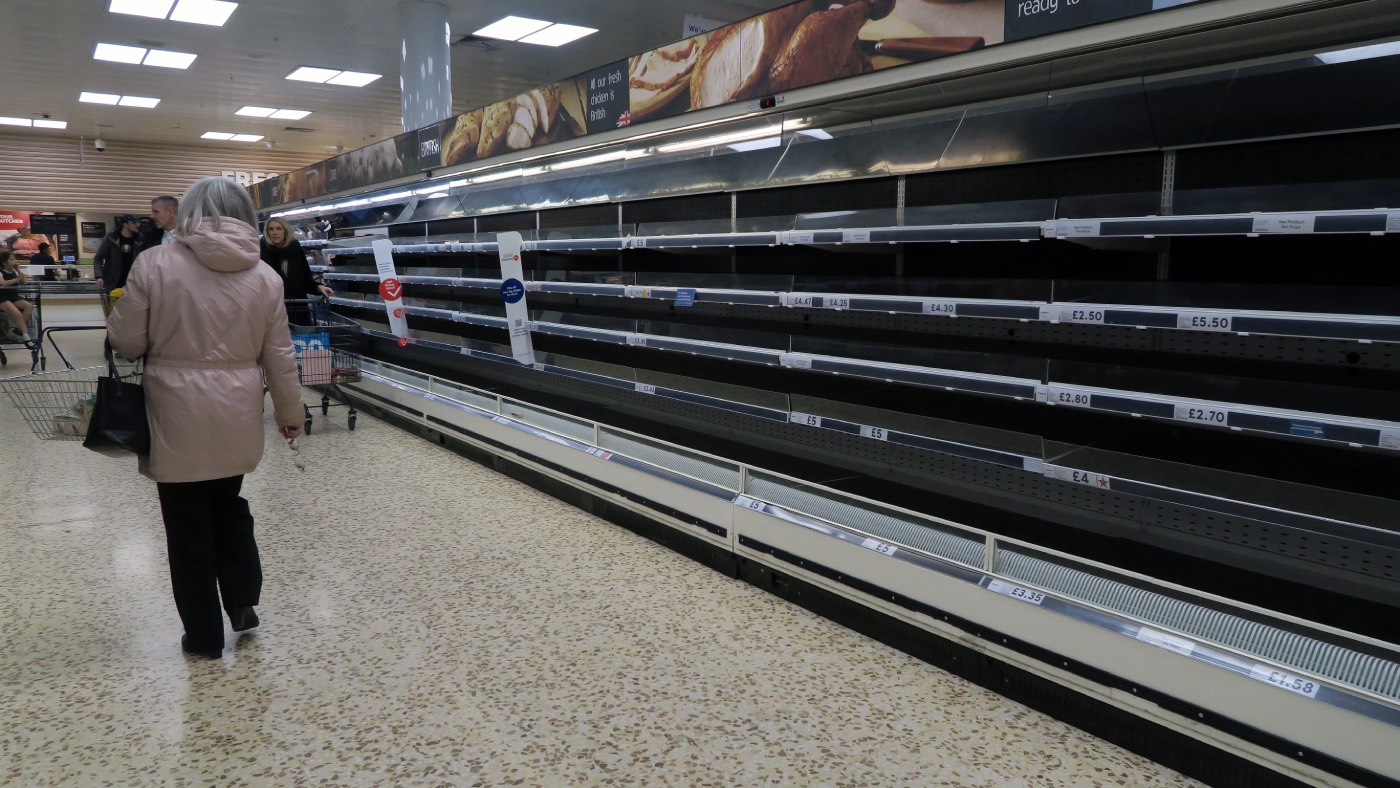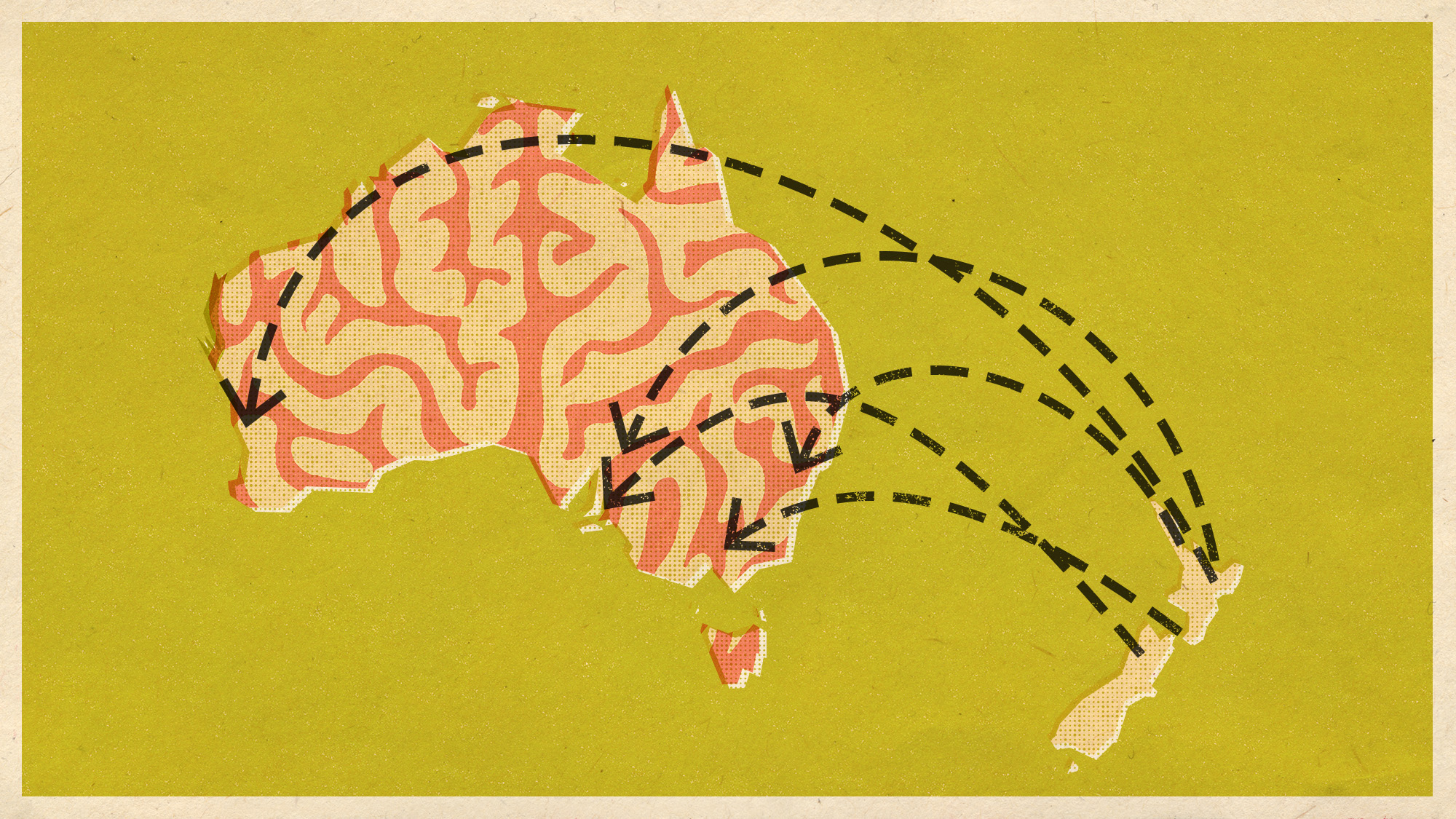Coronavirus: Supermarkets ‘want police support’ to stem panic buying
Fights break out in UK stores following rumours of heightened shopping restrictions

A free daily email with the biggest news stories of the day – and the best features from TheWeek.com
You are now subscribed
Your newsletter sign-up was successful
Industry sources have said that UK supermarkets want police support to deter unruly behaviour if London goes into lockdown to stem the spread of coronavirus.
Prime Minister Boris Johnson has joined forces with Tesco, Sainsbury’s, Asda and Morrisons to urge shoppers to stop panic buying.
“However,” says Reuters, “the pleas have fallen on deaf ears, with demand increasing and stores being stripped bare of food”.
The Week
Escape your echo chamber. Get the facts behind the news, plus analysis from multiple perspectives.

Sign up for The Week's Free Newsletters
From our morning news briefing to a weekly Good News Newsletter, get the best of The Week delivered directly to your inbox.
From our morning news briefing to a weekly Good News Newsletter, get the best of The Week delivered directly to your inbox.
City A.M. reports that some shops have been forced to impose limits on the number of in-demand products consumers can buy, due to shortages of basic items such as pasta, soup and toilet roll.
–––––––––––––––––––––––––––––––For a round-up of the most important stories from around the world - and a concise, refreshing and balanced take on the week’s news agenda - try The Week magazine. Get your first six issues for £6–––––––––––––––––––––––––––––––
Although supermarket bosses insist there is no shortage of food, the BBC reports that “there are warnings that the next potential weak link in the chain is at food manufacturers”.
This problem will be exacerbated, the broadcaster notes, as “staff absences... mark the beginning of a new and potentially serious supply chain problem”.
A free daily email with the biggest news stories of the day – and the best features from TheWeek.com
Andrew Opie, from the British Retail Consortium, the industry body representing supermarkets, told Sky News: “Retailers across the country are working closely with police and other partners to keep retail sites running as smoothly as possible.
“It is vital that police forces prioritise the safety of those who are working to meet the needs of an entire country,” Opie said.
He added that “anyone found to be abusing staff or customers should be met with the full force of the law”.
A spokesman for the National Police Chiefs Council said no national decision had been made on providing staffing at supermarkets. “We do not expect food shortages or looting. In fact, the experience of other countries suggest this is highly unlikely to be an issue,” they said.
After rumours that the army may also be called in to maintain order, a spokesperson for the prime minister moved to play down the claims, saying: “Maintenance of public order is the responsibility of the police, and there are no plans to use military personnel for public order during the coronavirus pandemic.”
In Australia, police have been called up to supervise long queues at grocery stores, with shoppers rushing to get their hands on what’s left on the shelves, according to the Daily Mail.
-
 Health insurance: Premiums soar as ACA subsidies end
Health insurance: Premiums soar as ACA subsidies endFeature 1.4 million people have dropped coverage
-
 Anthropic: AI triggers the ‘SaaSpocalypse’
Anthropic: AI triggers the ‘SaaSpocalypse’Feature A grim reaper for software services?
-
 NIH director Bhattacharya tapped as acting CDC head
NIH director Bhattacharya tapped as acting CDC headSpeed Read Jay Bhattacharya, a critic of the CDC’s Covid-19 response, will now lead the Centers for Disease Control and Prevention
-
 What's Jeff Bezos' net worth?
What's Jeff Bezos' net worth?In Depth The Amazon tycoon and third richest person in the world made his fortune pioneering online retail
-
 'Brain drain' fear as record numbers leave New Zealand
'Brain drain' fear as record numbers leave New ZealandUnder The Radar Neighbouring Australia is luring young workers with prospect of better jobs
-
 Ghost kitchens are pulling a disappearing act
Ghost kitchens are pulling a disappearing actunder the radar The delivery-only trend is failing to live up to the hype built up during the pandemic
-
 The birth of the weekend: how workers won two days off
The birth of the weekend: how workers won two days offThe Explainer Since the 1960s, there has been talk of a four-day-week, and post-pandemic work patterns have strengthened those calls
-
 Why household wealth took off during the pandemic
Why household wealth took off during the pandemicUnder The Radar The Covid-19 pandemic caused a lot of pain and hardship, but new research shows it also left most Americans wealthier
-
 Empty office buildings are blank slates to improve cities
Empty office buildings are blank slates to improve citiesSpeed Read The pandemic kept people home and now city buildings are vacant
-
 Inflation vs. deflation: which is worse for national economies?
Inflation vs. deflation: which is worse for national economies?Today's Big Question Lower prices may be good news for households but prolonged deflation is ‘terrible for the economy’
-
 America's 'cataclysmic' drop in college enrollment
America's 'cataclysmic' drop in college enrollmentToday's Big Question "The slide in the college-going rate since 2018 is the steepest on record"